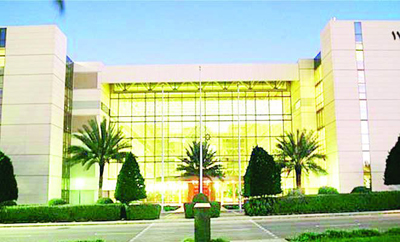Riyadh, Nov 6: Custodian of the Two Holy Mosques King Salman is sponsoring the 4th Saudi International Conference on Information Technology on Sunday.
 The venue of the conference is the King Abdulaziz City for Science and Technology in Riyadh. The conference seeks to put forward the appropriate and supportive infrastructure for the initiatives and programs of the Kingdom’s Vision 2030. The city created its initiatives within the National Transformation Program 2020, which aims to maximize the local content in the Kingdom’s key technical sectors, including those which are IT-related.
The venue of the conference is the King Abdulaziz City for Science and Technology in Riyadh. The conference seeks to put forward the appropriate and supportive infrastructure for the initiatives and programs of the Kingdom’s Vision 2030. The city created its initiatives within the National Transformation Program 2020, which aims to maximize the local content in the Kingdom’s key technical sectors, including those which are IT-related.
The four-day event will look at mega-data, analysis, design of interface and applied data platforms, technical data images, analysis of social media, in addition to Internet analysis and smart cities. This will be an opportunity for researchers to look at the latest research and uses of mega-data projects.
Three experts from outside the Kingdom will present papers. They are Hamido Fujita, professor at Iwate Prefectural University in Japan, who will talk about policy systems in health protection; professor Khoreshied Ahmad from Trinity College, Dublin, Ireland, who will talk on different applications for vocal and image data; and Tomas Shultz from Munich University who will discuss mega gene data in psycho-biological analysis.
Director of Program at the Joint Centers of Excellence Anas Faris will present a paper on dynamic city platforms, and from the National Center for Computer Technology and Applied Mathematics, Amar Al-Inizi will talk about the mechanism that provides suggestions for users of site-testimonial systems.
The sessions will also include data mining applications, image processing and natural language processing and applications, simulation and infrastructure.
The conference has launched a website for its programs and workshops with the link: kacstit2016.kacst.edu.sa.





Comments
Add new comment